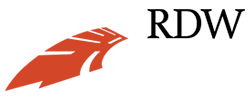Address:
Dienst Wegverkeer (RDW)
P.O. BOX 777
NL-2700 AT Zoetermeer
The Netherlands

About RDW
RDW is the Netherlands Vehicle Authority in the mobility chain. As an implementing body resorting under the responsibility of the Ministry of Infrastructure and Water Management, RDW contributes to the realisation of policy objectives in the area of mobility, traffic safety and the environment. RDW is an independent, non-departmental public body (NDPB) that is funded by fees.
In addition to cooperating with various Dutch ministries, RDW cooperates intensively and increasingly with partners in the tax, enforcement, safety and driving license chain. The expansion is also occurring globally. European and global regulations and cooperation in the area of mobility and data exchange between sovereign states is increasing. The activities of RDW in this area support these developments.
Core tasks of RDW are in five main areas:
- admitting vehicles and vehicle parts to the Dutch and European market,
- supervising companies accredited by RDW to monitor the technical condition of vehicles,
- gathering, storing, updating and managing data concerning vehicles, their owners and vehicle documentation, and providing information about this data to interested parties,
- issuing documents required for vehicles or owners, including vehicle registration certificates, driving licenses and Periodic Technical Inspection (PTI) forms for motor vehicles,
- participating – as a representative for the Dutch government – in various consultation structures in which international (vehicle) regulations and legislation is being prepared.
Main role in the project
The RDW brings knowledge of current and future type approval legislation, of the exemption process for intelligent systems in vehicles and insights on the automotive industry.
Within HEADSTART, RDW is contributing to the:
- State of innovation of existing initiatives and gap analysis in the driving license for the self-driving vehicle;
- Methodology and procedure based on the state-of-the-art and best practices used in the automotive industry;
- Development method/procedures to selected use cases;
- Demonstration of applied test methods, procedures and tools for the selected use cases;
- Compiling the existing Connected Automated Driving (CAD) testing and validation approaches and identify existing gaps and barriers;
- Standardization network and expertise, including liaising with the related UNECE groups.
